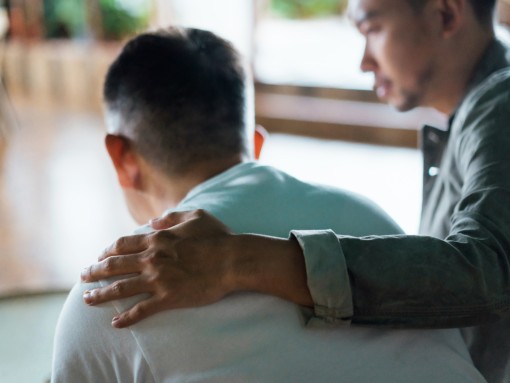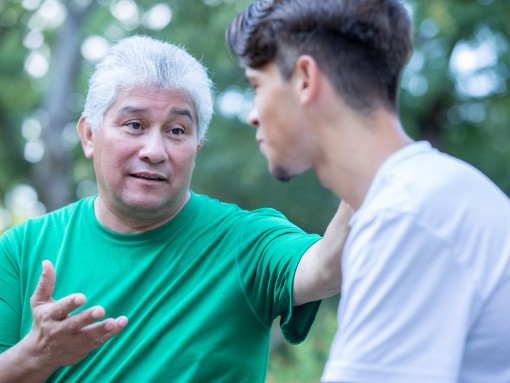You may have heard that BC is decriminalizing people who use drugs. This article will discuss some of the key differences between BC’s new decriminalization policy and legalization, and how recent changes will impact you and your loved ones. You can also learn more about the new policy at gov.bc.ca/decriminalization.
Is BC legalizing drugs?
No. Decriminalization is not legalization. BC has moved to decriminalize people using small amounts of certain drugs. That does not mean that the drugs are now legal—it will still be illegal to buy and sell them, to possess amounts of more than 2.5 grams, to produce them, or to transport them in and out of the country. You can’t buy these drugs legally at stores or dispensaries, or anywhere else.
What’s changing is that for the next three years, adults who have small amounts of particular drugs (cocaine, MDMA, methamphetamines and opioids) won’t face criminal charges or arrest just for having them or using them. Adults will also no longer have these drugs confiscated when the amount is at or below 2.5 grams. Instead, they will be offered information on health and social supports, as well as local treatment and recovery services.
The change only applies to adults (people aged 18 and older) and only to the specific drugs named. There are also some exceptions: for example, the changes don’t apply at schools or childcare centres, or when the drugs are within reach while you are operating a motor vehicle. You can still be arrested or charged for having drugs in those situations, even if the new policy would otherwise apply.
As of September 18, 2023, the exemption does not apply when drugs are used within 15 metres of skate parks, play structures in playgrounds, or wading pools and spray pools at parks.
In many cases, illegal drug use is not allowed on private property, including places like shopping malls, bars and cafes. Police can remove people from these places under the Trespass Act if drug use is happening against the wishes of the owner or operator.
What’s the difference between legalization and decriminalization?
A few years ago, Canada legalized cannabis. That means you can buy it from licensed sellers and use it legally. The government has laws about the production and sale of cannabis, just like it does for any other product you can buy to consume, like alcohol. Taxes also apply. Of course, there are still laws about how and when cannabis can be used and sold (for example, children cannot buy it), but overall it is legal.
BC's drug exemption approved by Health Canada does not legalize drugs. Instead, it decriminalizes people who have small amounts of drugs—it removes the threat of criminal charges against people who have small amounts of certain drugs for personal use in some situations. It is still illegal to buy or sell these drugs, and people who possess more than 2.5 grams can still be charged.
How does decriminalization apply to young people?
The change only applies to people 18 years of age and over. It will remain illegal for young people (under 18 years old) to possess any amount of any illegal drug. Young people found with illegal drugs may be offered alternatives to criminal penalties, such as referral by to community or health services.
It’s still illegal to sell drugs to young people, and for young people to sell drugs.
The new exemption doesn’t apply at schools or childcare centres—people who bring drugs onto these properties will still face charges as before.
Why did BC decide to ask for this? How did it happen?
BC has been facing a toxic drug crisis for years. We need to offer people help and support—and it’s harder to do that if they’re afraid of accessing services, because they worry they might be arrested or have their drugs seized by police. The fear may also cause people to hide their drug use or use drugs alone, which is dangerous. Decriminalization is intended to make it easier for people to get help by removing barriers and the stigma around substance use.
BC asked the Canadian government, through Health Canada, for permission to temporarily change how the law is enforced—in legal terms, the province requested an exemption from the federal Controlled Drugs and Substances Act. Health Canada approved BC’s request with terms and conditions. The exemption will last for three years.
Resources
Showing 2 Resources
Alcohol and Drug Information and Referral Service
Provides a free, confidential phone service for people throughout BC needing help with any kind of substance use concern. Offers information and referral to education and prevention resources, support groups, and a full range of counselling and treatment services. Not a clinical service.
HealthLink BC (8-1-1)
Free, reliable non-emergency health information and advice available by phone (8-1-1), online, or mobile app.

Stay Safer
If you or someone you know uses drugs, it’s more important than ever to know the ways to stay safer.

Talk to Youth About Drugs
Get the facts and stay connected with the young people in your life.
